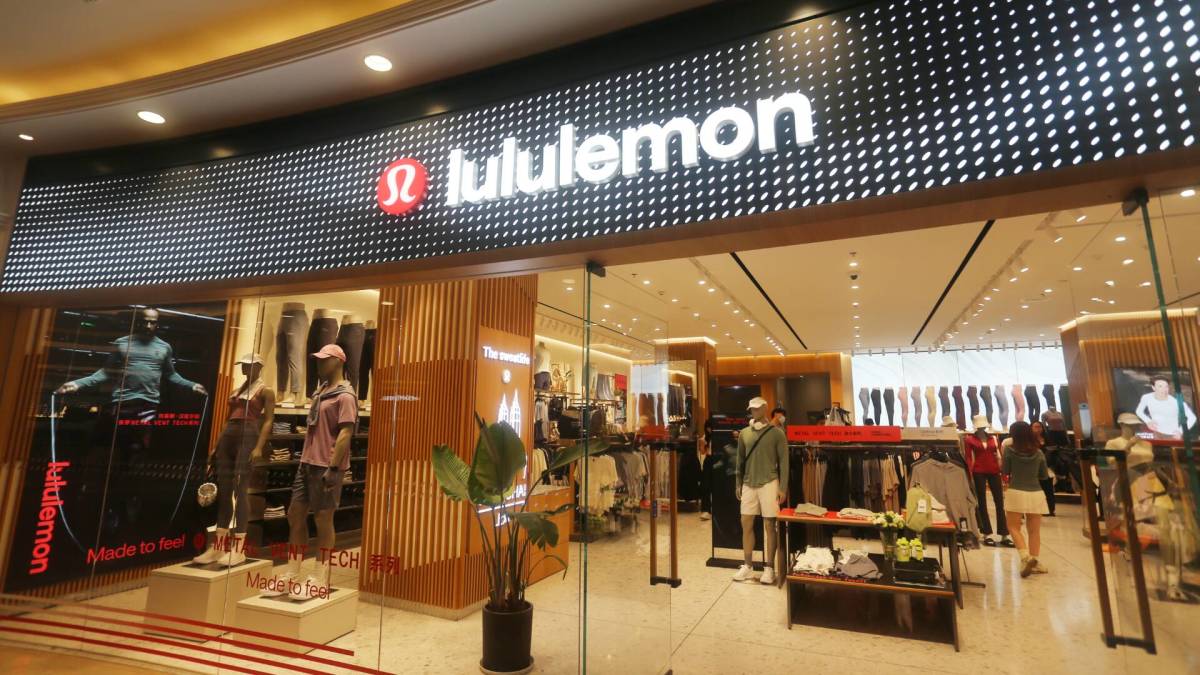When you hit the wall, you can stay put or start climbing.
Lorraine Hutchinson Christopher Nardone and making the upward move with Lululemon Athletica (LULU) .
💵💰Don't miss the move: Subscribe to TheStreet's free daily newsletter 💰💵
In a research note entitled “Climbing the Wall of Worry,” the Bank of America Research analysts explain their position on the athletic apparel and accessories company, which is scheduled to post second-quarter results on Sept. 4.
Shares of Lululemon have been anemic lately. The stock has tumbled 47% this year and the shares are off 26% from this time in 2024.
“We think the stock's selloff presents a particularly good opportunity to own a strong growth company with high margins,” said the analysts, who retained their buy rating while slashing their price target to $300 from $370.
Lululemon is trading at an all-time low valuation, the analysts said, which “tells us the market is looking for a sizable earnings cut.”
“If LULU can execute on its 2Q sales growth of 7-8% and reiterate a similar range for 2H, we think the stock will re-rate,” Hutchinson and Nardone told investors on Aug 26.
Image source: Costfoto/NurPhoto via Getty Images
Analysts: frustration with Lululemon's North America market
The analysts said that there is frustration in the market due to the frequent changes in messaging on why the North American business has stalled, “most recently due to the lack of scale on successful innovation.”
“We need to hear incremental data points that new product is working and will be big enough to turn the NA comp trend positive in 2H,” BofA said. “1Q's international deceleration across all markets was disappointing, and any proof points that China and ROW (rest of the world) have stabilized would be well received.”
More Tech Stocks:
- Veteran analyst names 30 AI stocks shaping future of technology
- Apple iPhone faces a major threat from Samsung
- Tiger Global buys more Nvidia, Amazon, exits surging tech stocks
The analysts said they still view the international market, which accounts for 25% of sales, “as the most attractive sales opportunity given an under-penetrated store footprint outside North America.”
Regarding tariffs, the analysts said that they think Lululemon “remains relatively well positioned versus other brands given its premium brand positioning and ability to mitigate through modest price increases.”
“We have heard increasing concerns about discounting,” they said. “While 1Q actually beat plan on markdowns, LULU guided to a small uptick in discounting in F25 given macro pressures; this will be a topic on the 2Q call.”
Morgan Stanley lowered the firm's price target on Lululemon to $223 from $280 and kept an equal weight rating on the shares, according to The Fly.
The firm anticipates potential Q2 EPS underperformance and management likely trimming fiscal year EPS guidance on higher tariffs, but adds that such an outcome “feels mostly appreciated” in the low valuation and Wall Street consensus.
Earlier this month, Wells Fargo analyst Ike Boruchow lowered the firm's price target on Lululemon to $205 from $225 and kept an equal weight rating on the shares.
Lululemon CEO: consumers remain cautious
Boruchow cut his estimates further for Lululemon, believing the company utilizes the de minimis exemption, which allowed companies to ship duty free from outside the U.S. into America and which is set to expire on August 29.
The analyst said that he sees a potential 90 cent to $1.10 earnings per share headwind to the Lululemon from the de minimis elimination.
Related: Struggling mall retailer makes massive change to how it sells clothes
In June, Lululemon beat Wall Street expectations for fiscal first-quarter earnings, but slashed its full-year earnings guidance, citing a “dynamic macro environment.”
CEO Calvin McDonald said during the company’s earnings call. that “my sense is that in the U.S., consumers remain cautious right now, and they are being very intentional about their buying decisions.”
“Given the uncertainties in the macro environment, our approach to planning remains balanced on managing the dynamics of the current year while also maintaining our focus on the long term,” Meghan Frank, chief financial officer, told analysts.
“We are managing expenses prudently while also continuing to invest to drive long-term growth and set ourselves up for future success,” she said.
Frank said the company was feeling the impact of external factors, “namely tariffs, where our mitigation efforts are more pronounced in the back half, and foreign exchange.”
The National Retail Federation said on Aug. 8 that import cargo volume at the nation’s major container ports is tentatively expected to end the year 5.6% below 2024’s volume, as new tariffs put pressure on international trade.
“Tariffs are beginning to drive up consumer prices, and fewer imports will eventually mean fewer goods on store shelves,” Jonathan Gold, the group’s vice president for supply chain and customs policy, said in a statement.
“Tariffs are taxes paid by U.S. importers that will result in higher prices for U.S. consumers, less hiring, lower business investment and a slower economy.”
Related: The stock market is being led by a new group of winners













